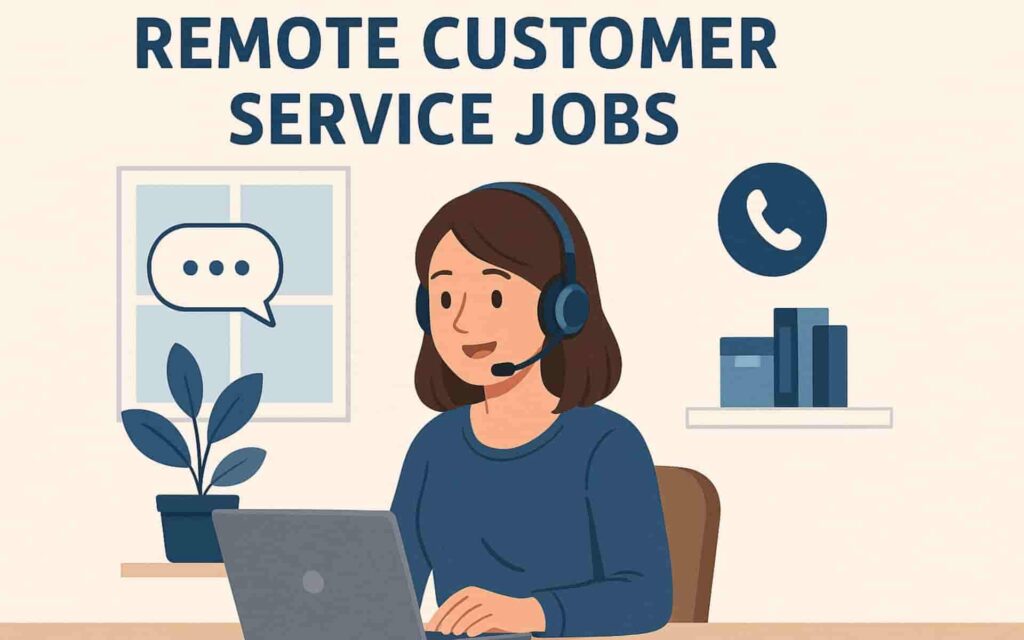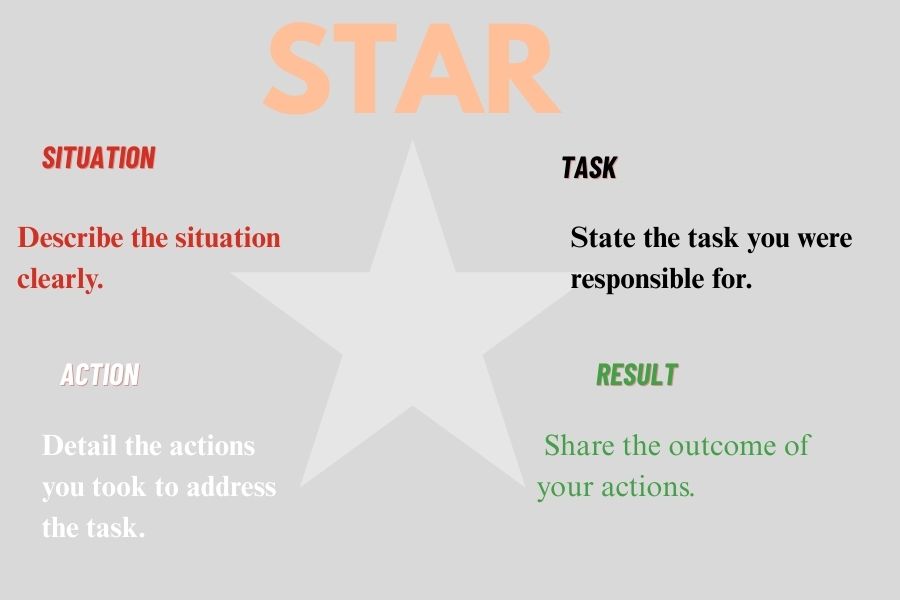Boost your chances of getting hired for remote customer service jobs. Learn the key skills employers want and how to showcase them in your resume.

Introduction
Finding a remote customer service job has become one of the most popular career choices in recent years. Flexible hours, the ability to work from anywhere, and the chance to interact with people worldwide make these roles attractive. But here’s the challenge: competition is tough. Hundreds of applicants may apply for the same role, which means you need to stand out.
So, how do you rise above the crowd? The answer lies in showcasing the skills you need to stand out in remote customer service job applications. Employers are not just looking for someone who can answer calls or reply to emails—they want candidates who demonstrate empathy, communication, problem-solving, and the ability to adapt in a fast-changing digital environment.
In this article, we’ll explore the essential skills that can help you get noticed, land more interviews, and build a successful career in remote customer service.
Why Skills Matter in Remote Customer Service Applications

Unlike traditional office-based roles, remote customer service jobs rely heavily on written and verbal communication without face-to-face interaction. Hiring managers cannot judge you by body language, in-person energy, or office presence. Instead, they look closely at your skills and how you present them in your resume, cover letter, and interviews.
By highlighting the right skills, you not only show employers you’re capable of doing the job—you prove that you can do it well, independently, and with professionalism from your home office.
The Essential Skills Needed in Remote Customer Service Job Applications
1. Excellent Communication Skills
At the heart of every customer service role is communication. You’ll be the voice—or the chat window—of the company. That means you need to:
- Write emails and messages that are clear, friendly, and professional.
- Handle customer calls with patience and empathy.
- Adapt your tone depending on the situation (formal for complaints, cheerful for general inquiries).
Tip: In your application, mention specific examples like “resolved 95% of customer inquiries through live chat with an average response time of 2 minutes.”
2. Active Listening
Listening is just as important as speaking or typing. Customers want to feel heard. If you can listen carefully, understand the problem, and respond with the right solution, you’ll win both the customer and the employer’s trust.
Showcase this in your job application by describing a time you successfully calmed down an angry customer by listening attentively before offering a solution.
3. Empathy and Emotional Intelligence
Remote customer service isn’t only about solving problems—it’s about connecting with people. Empathy allows you to put yourself in the customer’s shoes and respond in a way that makes them feel valued.
When applying, highlight how you:
- Handled difficult customer emotions with patience.
- Turned a frustrated customer into a satisfied one.
- Maintained professionalism under pressure
Recruiters love to see words like “empathetic,” “understanding,” and “solution-oriented” in applications.
4. Problem-Solving Ability
Many customer service issues don’t follow a script. You may face unexpected challenges such as system errors, unusual complaints, or product misunderstandings. Employers want candidates who can think quickly and creatively.
In your resume or cover letter, share examples like:
- “Resolved a billing issue affecting over 50 customers by identifying the system error and reporting it to IT.”
- “Reduced customer complaints by 30% through proactive troubleshooting.”
5. Technical Skills
Since you’ll be working remotely, you need to be comfortable with technology. Most companies use tools like:
- CRM platforms (Zendesk, Salesforce, HubSpot)
- Communication tools (Slack, Zoom, Microsoft Teams)
- Helpdesk ticketing systems
- Email and chat platforms
Employers love to see technical confidence in applications. Mention specific tools you’ve used and emphasize your ability to learn new systems quickly.
6. Time Management and Self-Discipline
Remote work requires discipline. Without a supervisor looking over your shoulder, you must stay productive and meet deadlines independently.
Show employers you have this skill by highlighting:
- Experience managing multiple customer requests at once.
- Ability to work in different time zones.
- Consistently meeting or exceeding response-time targets.
Pro tip: In your cover letter, you might write, “Working remotely has taught me strong time-management skills, ensuring I respond to customers promptly while balancing multiple tasks.”
7. Adaptability and Flexibility
Customer service environments change quickly. Policies get updated, new products launch, and unexpected issues arise. Employers value candidates who can adapt without stress.
For example, you might explain how you:
- Handled system changes while still maintaining service quality.
- Learned a new platform in a short time to support customer needs.
- Worked flexible shifts across different time zones.
8. Writing Skills for Remote Communication
Because so much of remote customer service happens through email and chat, your writing skills must be top-notch. Customers can sense tone through text, so it’s vital to remain clear, friendly, and professional.
Ways to improve and showcase this skill:
- Practice writing short, empathetic responses.
- Avoid jargon; keep messages simple and helpful.
- In your application, provide writing samples if possible.
9. Multitasking Ability
In customer service, it’s common to handle multiple chats, emails, or calls at once. Multitasking while keeping accuracy and empathy intact is a huge plus.
Demonstrate this skill in your application by sharing how you successfully balanced:
- High-volume chat support.
- Handling multiple queries while maintaining quality.
- Prioritizing urgent issues without neglecting others.
10. Customer-Centered Mindset
At the end of the day, customer service is about customer satisfaction. Employers want to know that you genuinely care about helping people and representing the company positively.
In your resume or interview, emphasize achievements like:
- “Consistently maintained a 98% customer satisfaction rating.”
- “Awarded Employee of the Month for excellent customer feedback.”
How to Highlight These Skills in Your Application
Crafting a Strong Resume
- Use action verbs like “resolved,” “assisted,” “coordinated,” “improved.”
- Quantify results whenever possible (e.g., “increased satisfaction ratings by 20%”).
- Tailor your resume to each job posting by matching required skills with your experience.
Writing a Winning Cover Letter
- Start with a strong opening that shows enthusiasm for customer service.
- Highlight 2–3 key skills directly related to the job posting.
- Share a short story that demonstrates empathy, problem-solving, or adaptability.
Acing the Interview

- Be ready to answer behavioral questions like:
- “Tell me about a time you handled a difficult customer.”
- “How do you manage multiple tasks at once?”
- Use the STAR method (Situation, Task, Action, Result) to give structured answers
Common Mistakes to Avoid When Showcasing Your Skills
- Listing generic skills without proof (e.g., “I’m a good communicator” without examples).
- Forgetting to tailor your application to each employer.
- Not mentioning technical skills when applying for remote roles.
- Overstuffing your resume with irrelevant experience.
Final Thoughts
Standing out in the remote job market isn’t about sending hundreds of applications—it’s about sending the right application that shows employers you have the skills they’re looking for.
From communication and empathy to problem-solving and technical expertise, these are the skills you need to stand out in remote customer service job applications. By showcasing them with real examples and a customer-first mindset, you’ll increase your chances of not only landing an interview but also getting hired.
👉 Remember: Every customer service role is an opportunity to grow. Keep developing your skills, practicing empathy, and learning new tools. Over time, you won’t just stand out—you’ll shine in your career as a remote customer service professional.
